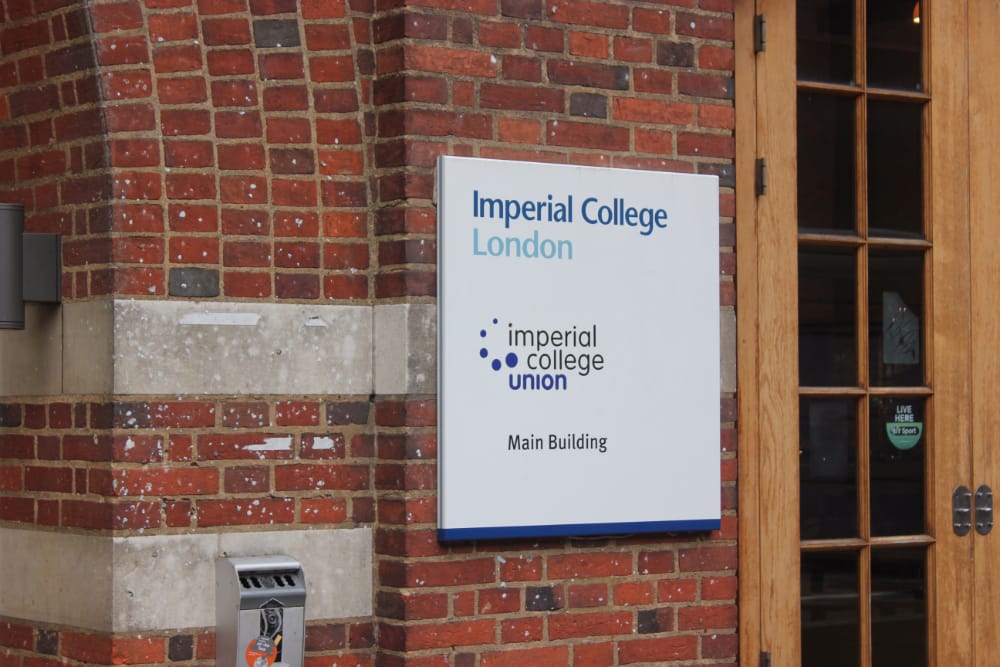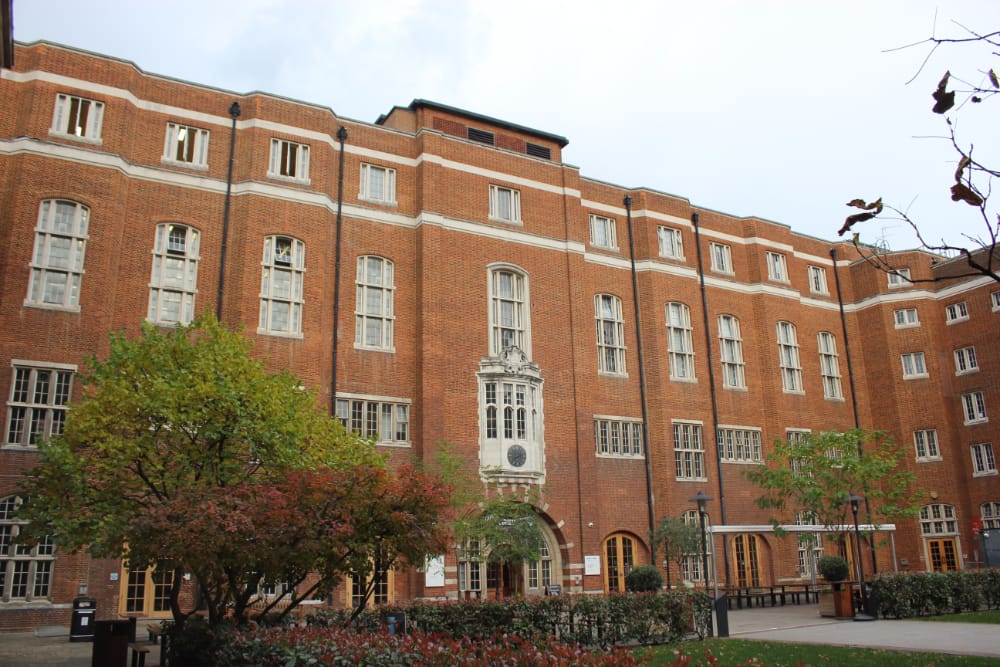Union's handling of sexual assault "more distressing" than assault itself, says Imperial alumna
The Union and College took over seven months to conclude their investigation, leaving the victim unsupported.

After returning to Imperial College Union for a society-related event at the beginning of this year, Helen – a recent graduate – was sexually assaulted by David, a member of that society’s committee. After she reported the attack, the College and Union took seven months to conclude her allegations were true, in which time the perpetrator had become president of the society.
Sexual abuse is widespread on university campuses: some reports suggest that a quarter of female students in the UK have been sexually assaulted, with many more experiencing harassment. Given the scale of the problem, it is reasonable to assume that the College and the Union are able to respond to reports of sexual abuse in ways that are fair, supportive, and put student welfare first. Helen’s experience, however, was defined by miscommunication, lack of a reliable point of contact, and the absence of support for the victim, society, or investigator.
I first met Helen towards the end of September, exactly six months since she had first reported the incident. We spent about 40 minutes in a cafe near where she is now working, and discussed the case. Her responses to my questions were measured and considered, but it was clear that she felt – and continues to feel – angry and disillusioned with her experience.
§
Helen did not raise a complaint immediately, remaining conflicted about the decision for around two months: “I was terrified that personal attacks would be used to dismiss my allegation: I’d had some wine, I was wearing a low cut dress, I like to flirt with people anyway. This prevented me from coming forwards, despite knowing what had happened was non-consensual,” she said.
What prompted her to report it, however, was discovering that David was running to be president of the society associated with the event. Such a role, she felt, would place him in an “inappropriate and potentially dangerous” position of power. This was something she had experienced herself; during her freshers’ year at another university, her respect for a student president’s authority meant she was taken advantage of sexually, and she feared this could happen again.
Hours before the society’s AGM, she told the outgoing president what had happened; they responded with sincerity and recommended that she report it to the Union. After informing two Union staff members, she was referred to the College, who, during their initial investigation, passed her between three different individuals. While this was because the College wanted to follow the recommended guidelines, providing her with a female staff member when she gave her statement, at no point was she assigned an official point of contact. After giving her statement, she went nearly a month with no contact, despite several emails to the staff members she’d been in touch with.
These periods of radio silence continued throughout the investigation. When she heard back from the College, they said the case had been passed on to another staff member, who then informed her it had been passed back to the Union. She then waited more than six weeks for a Union staff member – who had been assigned to lead the investigation – to get in touch, asking for another statement. Even when the investigation was drawing to a close, she experienced a period of two weeks in which she tried repeatedly to get in touch with the investigator, with no success.
“I spent most of this time in complete despair. The most painful times were when I knew (the perpetrator) was enjoying events which I stayed away from, out of fear that I would come across him,” Helen said. “The other overwhelming feeling was of isolation. I had no reliable contact and would go weeks hearing nothing. I was consumed with the case, while nobody responsible for it seemed to care, or even acknowledge it. This made me feel my grip on reality was slipping.”

Helen has a severe, long-term mental health condition which intensifies emotional pain, requiring her to go to hospital every week for treatment. “I’ve built up resilience, but this experience pushed me back into a suicidal state. At times, I was barely able to sleep or work,” she said. “Absurdly, the sexual assault investigation was more distressing than the sexual assault itself.”
Throughout the investigation, there was also a complete lack of certainty about when it might come to an end. Given that Helen raised the complaint after finding out the perpetrator may be in a position of authority once the academic year began, it was vital to her that the case concluded before then. For many freshers, this is their first time living away from home, and it can be a period of great vulnerability.
“Helen says that her experience pushed her back into a suicidal state”
Even after a sabbatical officer – who Helen had approached for help – had notified the investigator of the effect the investigation was having on her mental health, the investigation did not pick up pace. The expected finishing date was pushed back again and again: at the end of August, she was told it would conclude by mid-September; but when this date passed, she was told to expect a resolution by the month’s end; this date, too, passed, and the deadline shifted to the middle of October, by which point the Freshers’ Fair had been and gone.
A Union representative told Felix that investigations are “often sensitive and complex”, meaning they “take a long time to reach an outcome”. They said that “a lengthy period of investigation can add to the distress experienced, and we apologise that this has recently been the case”. While the College has said “it would not be right” to comment on a specific case, a College spokesperson told Felix “we deeply regret if anyone feels that an investigation of sexual assault or harassment has not been handled by the College with the urgency it warrants... we will seek to learn from this experience.”
§
What caused these delays? One clear problem was the gathering of witness statements. Helen was able to name four individuals (not including the perpetrator) who might have seen what happened, and their testimonies had to be collected independently. This process continued for months, and not a single person involved was able to submit a statement without some miscommunication. During this time, Helen was forced to act as intermediary, being asked to contact the witnesses herself.
“Coordinating the witness statements was extremely frustrating,” Helen said. “I would have a period of silence, then a period of being pelted with contradictory messages. Nothing made sense, and I wondered if I was being lied to. I felt completely out of control.”
One witness, Emily, first reached out to the College at the beginning of June, voicing her concern at not having been contacted, and offering to supply a statement. The College replied to her the next day, saying that they would be in touch with her shortly, but she never heard from them. She only managed to provide a statement to the Union in mid-September. Another witness, Nick, a graduate, was first contacted in June, but in mid-September the investigator told Helen that he had not been in contact with him; it was not until late September that he was able to provide a statement. At the end of August, the Union’s investigator told Helen that he had been in contact with another witness, Paul; just over two weeks later she was told that Paul had not been in touch. A few days later, Paul confirmed to Helen that he had been in touch with the Union, but the investigator continued to deny that this was the case: receipt of his statement was never acknowledged.
Despite the investigation being passed to the Union in June, and Helen being told in August that the investigator was awaiting a statement from the perpetrator with an imminent, hard deadline, it was not until October that David’s statement was taken.
The key witness, John, was first contacted towards the end of June. An initial meeting with the Union was cancelled, and over the next month he sent five emails to the investigator and visited the Union offices in person three times, with no response. After providing a witness statement, he waited nearly two months to hear a response, during which he emailed the investigator another five times.
When concerns were raised over this lack of contact, the Union cited issues with data protection that prevented them from reaching out to witnesses, saying that they had not been given explicit permission by the College to use the email addresses. Imperial College Union does not have its own data protection policy, and operates under College policy; the decision to delay contacting witnesses was one reached by the two organisations. The data protection concern they raised, however, related to contacting alumni, while John and most of the other witnesses were still students at the time the complaint was raised.
§
The Union investigation provisionally concluded at the end of October, more than nine months after the assault occurred, and seven months on from when Helen first reported it. During that time, her case had been bounced between at least half a dozen people, from the Union to the College and back again. The investigator found that “on the balance of probabilities, the allegations (made by Helen) are true,” but that David’s position was not “an enabling factor” for the sexual assault – referred to by the investigator as “sexual harassment” – partially because he was not in the role when it took place.
"ICU did not recommend removing the perpetrator from his position of authority, since he was not in that role at the time of the assault"
The investigator recommended reprimanding David, banning him from licensed Union premises and requiring him to demonstrate he is managing his drinking, as well as attending a consent workshop. He did not, however, recommend removing him as president.

“I read the recommendations and immediately felt faint. I couldn’t believe a months-long investigation could result in a mere slap on the wrist,” Helen said. “The focus on drinking was irrelevant and offensive, as it suggests that (the perpetrator's) alcohol consumption was to blame for his actions.”
Helen has appealed the recommendations, and is awaiting a decision by the Governance Committee.
§
The Union’s constitution states that one of their reasons for existence is to promote the “welfare of students at Imperial College London”. While Helen is, as an alumna, no longer a member of the university or Union, her experience sends a worrying message about how sexual misconduct cases are dealt with. Since 2010, the College has dealt with at least eleven complaints of sexual misconduct; while the Union is unable to provide official data on how many cases they deal with yearly, it is highly unlikely that this is the first case they have dealt with, and more cases are likely to occur.
The National Union of Students (NUS) ‘Hidden Marks’ report, carried out in 2009-10, was the country’s first nation-wide report into women students’ experience of sexual harassment and assault. The report made for shocking reading: one in seven women students had experienced serious sexual or physical violence, and “many women students struggle to get through their course without coming into to contact with harassment or violence in one form or another.”
What was most significant, however, was the low number of women who report such incidents: just 2% of victims of ‘less serious sexual assault’, and 4% of those who had experienced ‘serious sexual assault’ reported it to their institution. A Universities UK taskforce in 2015 found that non-reporting can be the result of sexual violence survivors fearing an “inappropriate or counterproductive response from their university”. Even when the individual does come forward, they often “fall through the gaps because staff members are unaware of how to handle such circumstances”. The review of Imperial’s institutional culture, carried out in 2016, echoed these concerns around non-reporting of discrimination and abuse, which particularly affect women on campus; one participant said Imperial’s ‘ingrained misogyny’ was “so deep that it had become normal.”
For both the College and the Union, there does not appear to be an official policy on sexual violence, although they both list sources of support on their websites. While sexual assault is covered by the College’s Student Disciplinary Procedure, there is no specific policy on it, unlike, say, their policy on harassment and bullying. The closest the Union comes to one is their Safe Space Policy, which “aims to create an environment where all students, staff, and visitors feel safe and protected.” They told Felix that their policy is “clear that we encourage reporting... and have a zero-tolerance approach.”
There are clear steps the College and the Union could take to address the issue of sexual violence: Hareem Ghani, the NUS National Women’s Officer, has said that “as university communities we should respect the leadership of the victim/survivor in driving a process that we support”, while the Universities UK taskforce concluded that having effective reporting mechanisms and well-trained staff were key to encouraging students to come forward.
Fintan O’Connor, Deputy President (Welfare), has highlighted the need for increased support systems, telling Felix that the Union “had a duty to do better” earlier on this term. The Union has been working with the College to secure funding to develop a sexual violence support programme, with six Sexual Violence Liaison Officers being trained – two of whom are Union staff – scheduled to be in place in January. They have also implemented active bystander training. In a statement to Felix, a Union representative said that they acknowledged “there is more that the Union and College can do to reduce the risk of incidents occurring and to increase support for victims”. They will be reviewing this case during their governance review this year. A College representative told Felix that they will be “consulting with groups who specialise in supporting victims of sexual assault or rape”, to ensure they can offer “the best support possible to students”.
§
Coming forward is one thing, but the experience that follows is another. The recent spate of high-profile cases brought against those in power – both in Hollywood and Westminster – coupled with the sense of solidarity that campaigns such as #MeToo generate, have resulted in more victims coming forward. But this is only half the battle: students, staff, and alumni need to know that their experiences will be listened to and acted upon.
While Helen – like many other women – has let countless instances of sexual harassment and assault slide, she had previously reported two sexual assaults by strangers to the police. Although there was not sufficient evidence to identify and prosecute the perpetrators, she always found the officers kind and capable. One of the key differences between how the police and the Union handled her cases was having a reliable point of contact on the police force who she felt was on her side, and always willing to keep her informed of progress.
“If I had known at the beginning what my experience (with ICU) would be like, I would have gone to the police instead,” she said. “The insincerity and incompetence I encountered with the Union was demoralising. What troubled me most was the thought of how many other sexual abuse victims at Imperial have surely suffered similar treatment, and conceivably even had their cases buried by negligence.”
An organisation is not best judged on its successes, but on its failures. Helen’s experience represents a single person’s experience, but even that is one too many when one considers the impact of such cases. “Unless the Union can demonstrate they are able to handle sexual abuse cases efficiently, fairly, and supportively,” she tells me, “it is clear to me that it should not take on this responsibility.”
Names have been changed. If you have been affected by anything discussed in this article, please consider phoning The Samaritans (116 123), Rape Crisis (0808 802 9999), or Survivors UK (020 3598 3898) for confidential support and advice.









